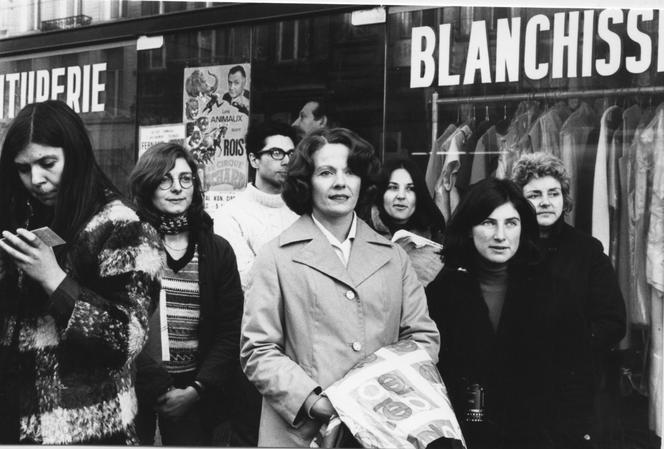


Ten years. Perhaps that's how long it takes for a body of work to come full circle and be seen in a new light. The return to cinemas of Chantal Akerman's work, almost a decade after her suicide in October 2015, is a major event in a cinephile's autumn. In April 2023, the re-release of Jeanne Dielman, 23, quai du Commerce, 1080 Bruxelles (1975) drew 20,000 spectators to 200 screens.
This time, distributor Capricci is raising the stakes with a retrospective of 16 feature-length films freshly restored by the Cinémathèque Royale de Belgique. This salvo consists of two cycles: the first, "1974-1993" in cinemas from September 25 and the second, "1996-2015" from October 23. There will also be an exhibition at the Jeu de Paume in Paris through January 19, 2025 titled "Chantal Akerman: Travelling," which focuses on the filmmaker's visual work through a series of installations and archives. All this will be crowned by a lavish Blu-ray box set of 46 films, scheduled for release in mid-October.
Once past the Jeanne Dielman monument, this massive revival invites us to explore the vast detours of the work that lies behind it, often perceived in terms of its fractures (fiction, documentaries, TV films, self-portraits), but whose obsessive coherence we can now better comprehend. Born in 1950 in the suburbs of Brussels, Akerman stepped behind the camera at an early age, making her first short film at the age of 18, the explosive Saute ma ville (Blow Up My Town, 1968). In her early years, she absorbed some of the most radical aesthetic adventures of the time: firstly, that of European modernity, which she embraced with the momentum of Jean-Luc Godard's Pierrot le Fou (1965); then that of the American avant-garde (Michael Snow, Jonas Mekas, Andy Warhol), which she immersed herself in during a stay in New York in the early 1970s.
Her films have maintained this twofold demand for form without renouncing to reach out to audiences through comedy: A Couch in New York (1996), Tomorrow We Move (2004), the musical Golden Eighties (1986) or the novelistic The Captive (2000), based on Proust and Almayer's Folly (2011) based on Conrad.
The beauty of Akerman's cinema lies in the tension that arises between two opposing horizons: on the one hand, the bedroom, where we withdraw, and on the other, the world, or the temptation of the distant. The challenge is to find passageways from one to the other, or to establish short-circuits. In Je, tu, il, elle (I You He She, 1974), the director presented herself as an indolent recluse in her apartment, a small world she reconfigured at will by moving furniture around. And then the young girl finally got out, haphazardly climbing into a truck, taking a ride with the driver (Niels Arestrup), and there the whole otherness of the world entered her field of vision. In News From Home (1977), Akerman collected non-legendary views of New York (anonymous streets, characterless neighborhoods), while her voice-over read letters signed by her mother. The indifferent city, broken down into lines and surfaces, was seen through the filter of this epistolary parentage.
You have 54.4% of this article left to read. The rest is for subscribers only.
